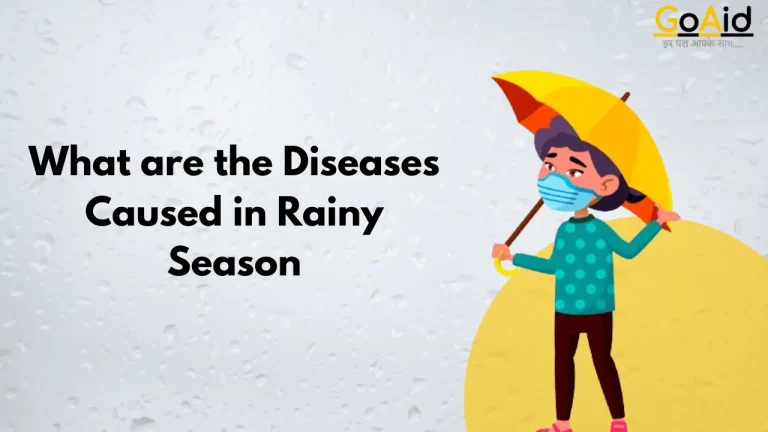Suppose you are the kind of person who loves to be aware of things related to the popular hospital departments and their working, importance, definition, equipment, treatment, and so on. In that case, you should also know about the Pediatrics Department of a Hospital. In this department, many key takeaways will help you gather general information about the pediatrics department in the hospital.
This is why, in this blog, we have added comprehensive details about the Pediatrics Department in Hospitals such as what is the department of Pediatrics, Pediatrics services in hospitals, their roles and responsibilities, features and specifications, what treatment you get in the Pediatrics Department in Hospital, essential equipment of Pediatrics Department and much more. If you are also excited to know all these information, then read this blog to the end.
So, letŌĆÖs start-
What is Pediatrics Department? ŌĆō Pediatrics Meaning
The Pediatrics Department in hospitals focuses on the medical care and treatment of infants, children, and adolescents. Pediatrics is dedicated to diagnosing and managing a range of child-related health conditions, including those requiring specialized care in the Pediatrics ward. Medical Pediatrics involves administering vaccinations, developmental assessments, and managing chronic illnesses.
The Department of Pediatrics also performs Pediatrics significant tests, which are essential for early diagnosis. Pediatric treatment may include routine checkups, emergency care, or long-term therapies. The Pediatrics department in hospitals ensures that the hospital Pediatrics room is equipped to handle the unique needs of younger patients.
Roles & Responsibilities of the Pediatrics Department
These are the key roles and responsibilities of the Pediatrics Department:
1. Patient Care
The Pediatrics department ensures comprehensive care for infants, children, and adolescents, focusing on preventive measures, routine checkups, immunizations, and illness treatments. Pediatricians manage both outpatient care and inpatient treatments within the specialized Pediatrics ward.
2. Diagnosing Conditions
Pediatricians perform various Pediatrics significant tests to diagnose conditions like asthma, infections, developmental disorders, and allergies. Early diagnosis through regular screenings ensures timely intervention and effective treatment for a wide range of pediatric health concerns.
3. Treatment Planning
The Pediatrics department develops personalized pediatric treatment plans based on each childŌĆÖs medical condition. These plans may involve medications, physical therapies, or surgeries, focusing on restoring health and supporting the childŌĆÖs overall development.
4. Parental Guidance
Educating parents is a critical responsibility, with pediatricians offering advice on nutrition, child safety, and developmental milestones. The department ensures that parents understand their childŌĆÖs healthcare needs and supports them through informed decision-making.
5. Emergency Response
Pediatricians respond to urgent conditions like trauma, severe infections, or respiratory issues. The hospital Pediatrics room is equipped to handle critical pediatric emergencies. With this, it ensures quick diagnosis and stabilization to improve patient outcomes.
Read More: Full Details about Neurology Department in Hospitals
6. Developmental Monitoring
Pediatricians monitor childrenŌĆÖs physical, emotional, and cognitive development to identify any delays or issues. This involves regular checkups and evaluations to ensure children are meeting developmental milestones at appropriate ages.
7. Immunizations
Administering vaccines is a key responsibility in Pediatrics. Ensuring children receive vaccinations on time helps protect them from various infectious diseases and supports public health efforts to prevent outbreaks.
8. Preventive Care
The Pediatrics department emphasizes prevention by conducting routine health assessments, providing dietary advice, and promoting healthy lifestyles. Preventive care helps in reducing the occurrence of illnesses and improving long-term health.
9. Collaboration with Specialists
Pediatricians often collaborate with specialists like pediatric surgeons, cardiologists, or neurologists for complex cases, such as congenital defects, to ensure a multi-disciplinary approach to optimal patient care.
10. Inpatient Care
The Pediatrics ward in hospitals provides care for children requiring extended hospitalization. Pediatricians manage long-term treatments, surgeries, or rehabilitation. With this, it ensures that young patients receive comprehensive care in a supportive environment.
Also Read: Complete Guide to the Oncology Department in Hospital
Features and Specialities of the Pediatrics Department
These are the key features and specialties of this department:
Features of the Pediatrics Department
- Child-Centered Care: Focuses on the physical and emotional well-being of children, providing age-appropriate care in the Pediatrics ward.
- Comprehensive Services: Offers a full range of pediatric treatments, from routine checkups to managing complex medical conditions.
- Family Involvement: Actively includes parents in treatment plans, educating them about their childŌĆÖs health and development.
- Developmental Monitoring: Regular assessments track physical, cognitive, and emotional growth for early intervention in potential issues.
- Specialized Equipment: Essential equipment in the Pediatrics ward includes child-friendly tools designed for safe, accurate diagnosis and treatment.
Know More: Complete Guide to the Cardiology Department in Hospitals | Roles, Types, Diseases Treated & Doctors
Specialties of Pediatrics Department
- Neonatal Care: Provides specialized care for newborns, especially premature babies. With this, it ensures critical support for early life.
- Pediatric Surgery: Conducts surgeries for congenital and acquired conditions. With this, it ensures quick recovery in young patients.
- Pediatric Oncology: Specializes in treating childhood cancers through chemotherapy, radiation, and surgical interventions.
- Pediatric Cardiology: Manages heart-related issues in children. With this, it offers diagnosis and treatment for congenital heart defects.
- Child Psychology: Addresses emotional and behavioral issues. With this, it offers therapy and support for mental health challenges in children.
What treatment is provided under the Pediatrics Department?
The Pediatrics department offers a wide range of treatments focused on the health and well-being of children, addressing illnesses, developmental issues, and preventive care. Comprehensive care is provided through various pediatric services in hospitals and specialized wards.
- Infection Management: This treatment helps for common childhood infections like colds, flu, and more serious illnesses such as pneumonia. With this, it ensures swift recovery through medications and supportive care.
- Vaccinations: This treatment helps with administering vaccines as part of Pediatrics treatment to protect children against preventable diseases, following an immunization schedule.
- Chronic Disease Management: This treatment helps by providing care for chronic illnesses like asthma, diabetes, and epilepsy through long-term Pediatrics treatment plans.
- Developmental Disorders: This treatment diagnoses and treats developmental issues such as autism and ADHD. With this, it offers therapeutic interventions and support services.
- Emergency Care: This treatment helps with immediate care in cases of pediatric emergencies like trauma or infections, with specialized hospital Pediatrics room facilities.
- Nutritional Guidance: This treatment helps by offering advice on proper nutrition and supplements to ensure healthy growth and development in children.
- Pediatric Surgery: This treatment conducts surgeries to correct congenital deformities or treat serious conditions, with a focus on minimally invasive techniques.
Read More: Difference Between OPD And IPD: Comprehensive Guide
Essential Equipment used in the Pediatrics Department
These are the key equipment used in this department
- Incubators: This equipment provides a controlled environment for premature or critically ill infants, maintaining temperature and humidity levels for their survival.
- Pediatric Ventilators: This equipment assists infants and children with breathing difficulties by delivering oxygen and helping with respiration.
- Pulse Oximeters: This equipment measures oxygen saturation in the blood, crucial for monitoring respiratory function in children.
- Infusion Pumps: This equipment delivers precise amounts of fluids, medications, or nutrients to pediatric patients. With this, it ensures accurate dosing.
- Neonatal Phototherapy Unit: This equipment treats jaundice in newborns by using light to break down excess bilirubin in the blood.
- Cardiac Monitors: This equipment tracks the heart rate, rhythm, and other vital signs in critically ill children. With this, it ensures quick intervention if needed.
- Pediatric Resuscitation Kits: This equipment contains equipment like masks, tubes, and defibrillators designed for pediatric emergencies.
- Weighing Scales: This equipment specialized scale for measuring infants and children. This ensures proper weight monitoring during growth.
Also Read: Difference between Dead Body Ambulance & Dead Body Freezer Box
Conclusion to the Pediatrics Department
In conclusion, we have provided a comprehensive overview of the Pediatrics department in hospitals. We have explained what the Pediatrics department is, along with the meaning of Pediatrics. Additionally, we covered the features and specialties of Pediatrics, as well as the roles and responsibilities of the Pediatrics department.
Essential equipment used in the Pediatrics department was also detailed to give you a complete understanding of how this department functions. We hope you have gathered all the necessary information about this department. If you have any further questions, feel free to ask in the comment box.
Book Ambulance: GoAid Ambulance Service
FAQs related to the Pediatrics Department
The Pediatrics department in the hospital focuses on the healthcare of infants, children, and adolescents. With this, it offers specialized Pediatrics treatment for various medical conditions affecting younger patients.
A Pediatrician is a doctor specializing in medical Pediatrics, responsible for diagnosing and treating illnesses in children from infancy to adolescence.
Pediatrics significant tests include blood tests, allergy tests, growth and development assessments, and imaging tests like X-rays, crucial for diagnosing childhood conditions.
Pediatric treatment includes medical care for infections, chronic diseases, developmental disorders, and emergency interventions, as well as preventive measures like immunizations.
Pediatrics is the branch of medicine focused on the health and medical care of infants, children, and adolescents.
The Function of the Pediatrics Department in the Hospital includes providing specialized care for children, managing illnesses, performing surgeries, and offering preventive health services.
In the Pediatrics department, children receive care for a variety of conditions, undergo diagnostic tests, and receive treatment plans tailored to their age and developmental stage.
A Pediatrics ward is a specialized section of the hospital designed to care for children, equipped with essential equipment in the Pediatrics ward like incubators and ventilators.
The Hospital Pediatrics ward is used for admitting and treating children with illnesses requiring inpatient care, where they receive treatment in a child-friendly environment.
The Pediatrics department diagnoses, treats, and manages childrenŌĆÖs health, including emergency care, routine check-ups, vaccinations, and treatment of chronic diseases.














